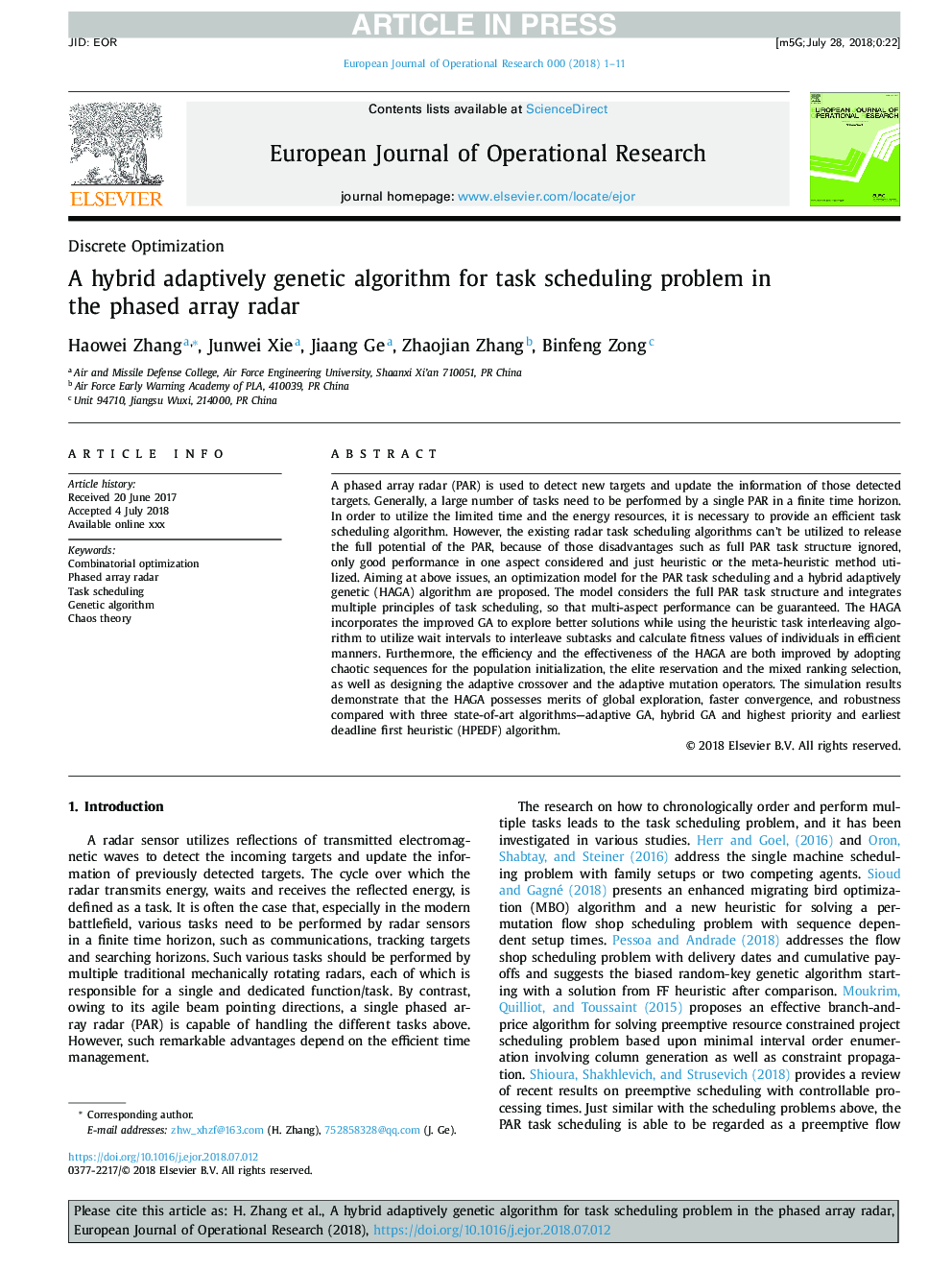| Article ID | Journal | Published Year | Pages | File Type |
|---|---|---|---|---|
| 11012406 | European Journal of Operational Research | 2019 | 11 Pages |
Abstract
A phased array radar (PAR) is used to detect new targets and update the information of those detected targets. Generally, a large number of tasks need to be performed by a single PAR in a finite time horizon. In order to utilize the limited time and the energy resources, it is necessary to provide an efficient task scheduling algorithm. However, the existing radar task scheduling algorithms can't be utilized to release the full potential of the PAR, because of those disadvantages such as full PAR task structure ignored, only good performance in one aspect considered and just heuristic or the meta-heuristic method utilized. Aiming at above issues, an optimization model for the PAR task scheduling and a hybrid adaptively genetic (HAGA) algorithm are proposed. The model considers the full PAR task structure and integrates multiple principles of task scheduling, so that multi-aspect performance can be guaranteed. The HAGA incorporates the improved GA to explore better solutions while using the heuristic task interleaving algorithm to utilize wait intervals to interleave subtasks and calculate fitness values of individuals in efficient manners. Furthermore, the efficiency and the effectiveness of the HAGA are both improved by adopting chaotic sequences for the population initialization, the elite reservation and the mixed ranking selection, as well as designing the adaptive crossover and the adaptive mutation operators. The simulation results demonstrate that the HAGA possesses merits of global exploration, faster convergence, and robustness compared with three state-of-art algorithms-adaptive GA, hybrid GA and highest priority and earliest deadline first heuristic (HPEDF) algorithm.
Related Topics
Physical Sciences and Engineering
Computer Science
Computer Science (General)
Authors
Zhang Haowei, Xie Junwei, Ge Jiaang, Zhang Zhaojian, Zong Binfeng,
